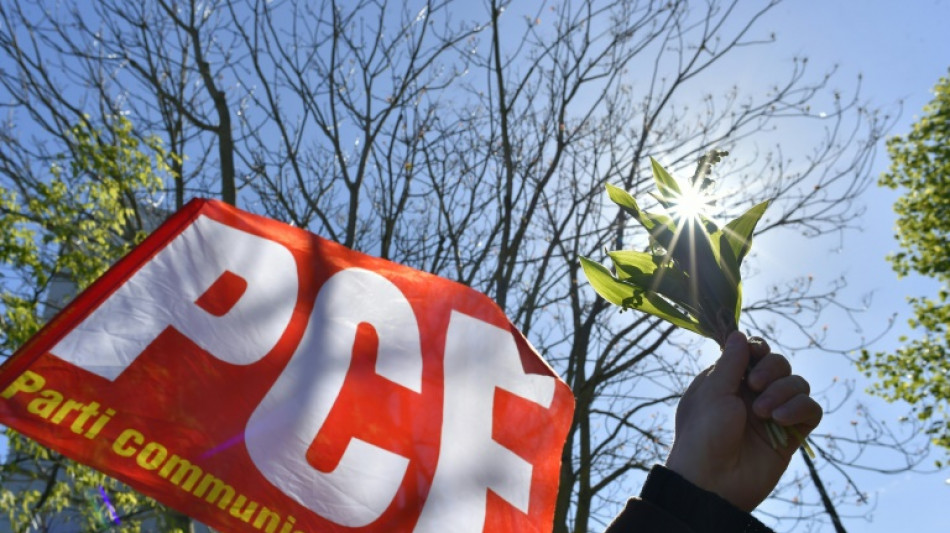
-
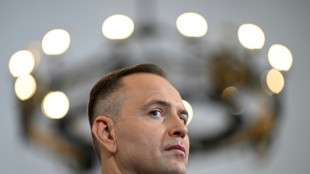 Ukraine's Zelensky in Poland for first meeting with nationalist president
Ukraine's Zelensky in Poland for first meeting with nationalist president
-
England in disarray at 59-3 in crunch Test as Lyon, Cummins pounce
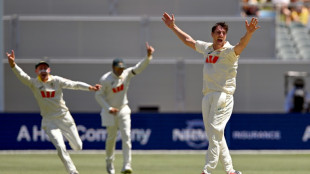
-
 Japan faces lawsuit over 'unconstitutional' climate inaction
Japan faces lawsuit over 'unconstitutional' climate inaction
-
Migrants forced to leave Canada after policy change feel 'betrayed'
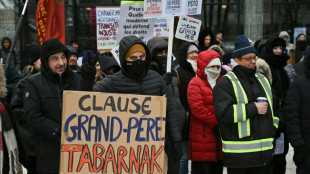
-
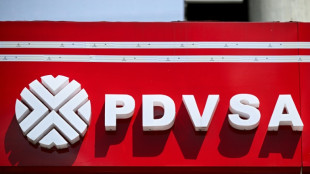 What's next for Venezuela under the US oil blockade?
What's next for Venezuela under the US oil blockade?
-
Salvadorans freed with conditional sentence for Bukele protest

-
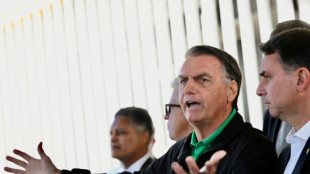 Brazil Congress passes bill to cut Bolsonaro prison term
Brazil Congress passes bill to cut Bolsonaro prison term
-
Cricket Australia boss slams technology 'howler' in Ashes Test
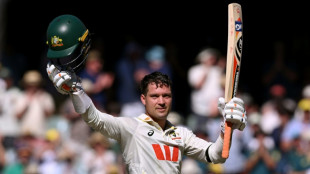
-
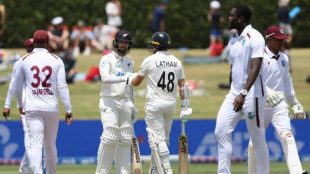 New Zealand 83-0 at lunch on day one of third West Indies Test
New Zealand 83-0 at lunch on day one of third West Indies Test
-
Ecuadorean footballer Mario Pineida shot and killed

-
 US government admits liability in deadly DC air collision
US government admits liability in deadly DC air collision
-
Ex-podcaster Dan Bongino stepping down as deputy FBI director

-
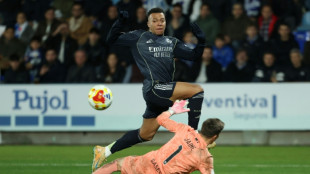 Real Madrid scrape past third-tier Talavera in Spanish Cup
Real Madrid scrape past third-tier Talavera in Spanish Cup
-
Hunt for US college mass shooter drags into fifth day

-
 Cherki inspires Man City, Newcastle strike late to reach League Cup semis
Cherki inspires Man City, Newcastle strike late to reach League Cup semis
-
Barcelona, Lyon and Chelsea reach Women's Champions League quarters
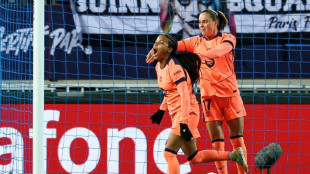
-
 Venezuela reacts defiantly to US oil blockade, claims exports unaffected
Venezuela reacts defiantly to US oil blockade, claims exports unaffected
-
Nasdaq tumbles on renewed angst over AI building boom
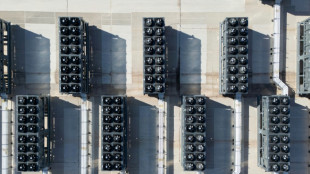
-
 S.Africa expels Kenyans working on US Afrikaner 'refugee' applications
S.Africa expels Kenyans working on US Afrikaner 'refugee' applications
-
US Congress ends Syria sanctions
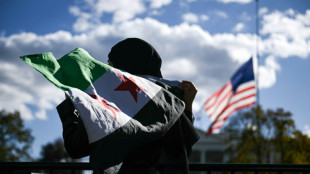
-
 Cherki inspires Man City cruise into League Cup semis
Cherki inspires Man City cruise into League Cup semis
-
Billionaire Trump nominee confirmed to lead NASA amid Moon race
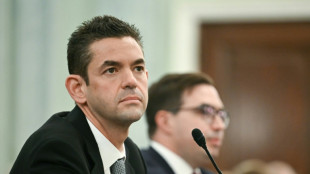
-
 Mahomes undergoes surgery, could return for 2026 opener: Chiefs
Mahomes undergoes surgery, could return for 2026 opener: Chiefs
-
Melania Trump steps into spotlight in Amazon film trailer
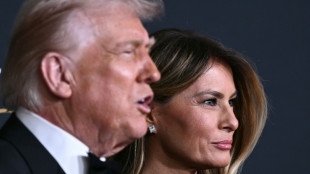
-
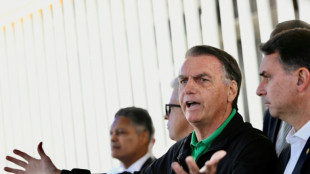 Brazil Senate advances bill that could cut Bolsonaro jail term
Brazil Senate advances bill that could cut Bolsonaro jail term
-
Safonov hero as PSG beat Flamengo in Intercontinental Cup
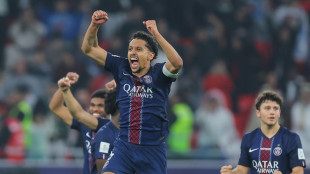
-
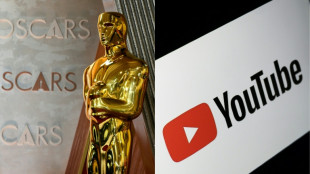 Oscars to stream exclusively on YouTube from 2029
Oscars to stream exclusively on YouTube from 2029
-
Oscars to stream exclusively on YouTube from 2029: Academy
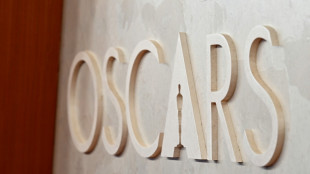
-
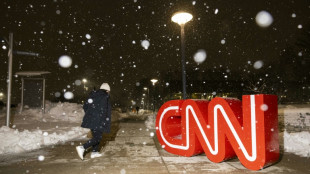 CNN's future unclear as Trump applies pressure
CNN's future unclear as Trump applies pressure
-
Zelensky says Russia preparing for new 'year of war'
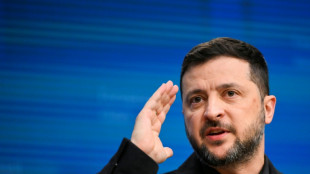
-
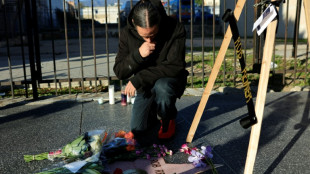 Rob Reiner's son appears in court over parents' murder
Rob Reiner's son appears in court over parents' murder
-
US Congress passes defense bill defying Trump anti-Europe rhetoric

-
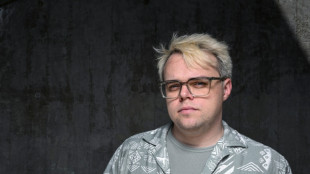 Three Russia-themed anti-war films shortlisted for Oscars
Three Russia-themed anti-war films shortlisted for Oscars
-
US oil blockade of Venezuela: what we know
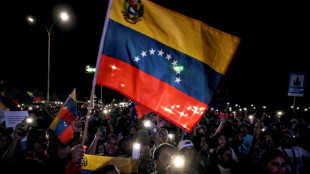
-
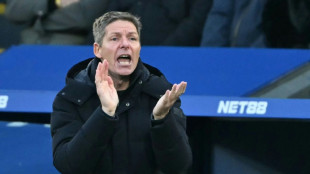 Palace boss Glasner says contract talks on hold due to hectic schedule
Palace boss Glasner says contract talks on hold due to hectic schedule
-
Netflix to launch FIFA World Cup video game
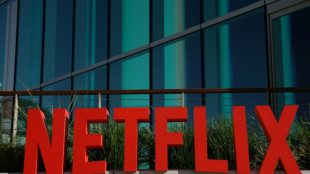
-
 Venezuela says oil exports continue normally despite Trump 'blockade'
Venezuela says oil exports continue normally despite Trump 'blockade'
-
German MPs approve 50 bn euros in military purchases
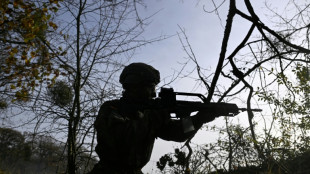
-
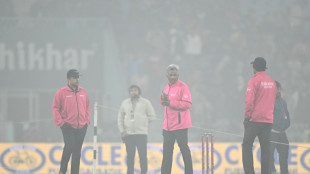 India v South Africa 4th T20 abandoned due to fog
India v South Africa 4th T20 abandoned due to fog
-
Hydrogen plays part in global warming: study
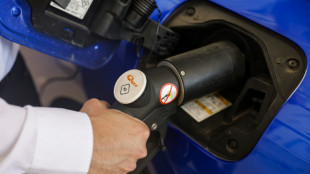
-
 EU's Mercosur trade deal hits French, Italian roadblock
EU's Mercosur trade deal hits French, Italian roadblock
-
What next for Belarus after US deal on prisoners, sanctions?
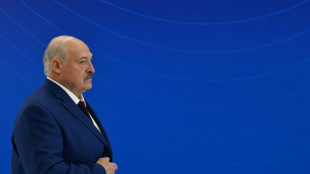
-
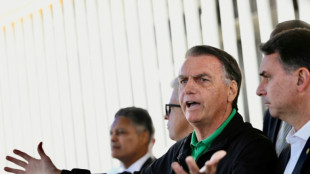 Brazil Senate debates bill that could slash Bolsonaro jail term
Brazil Senate debates bill that could slash Bolsonaro jail term
-
Coe shares 'frustration' over marathon record despite Kenyan's doping ban
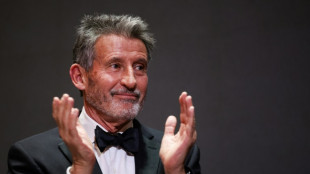
-
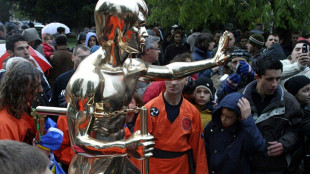 Stolen Bruce Lee statue 'returns' to Bosnia town
Stolen Bruce Lee statue 'returns' to Bosnia town
-
Veteran Suarez signs new Inter Miami contract

-
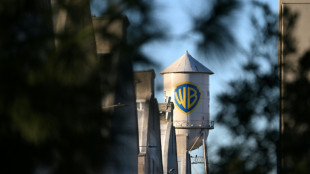 Warner Bros rejects Paramount bid, sticks with Netflix
Warner Bros rejects Paramount bid, sticks with Netflix
-
Crude prices surge after Trump orders Venezuela oil blockade
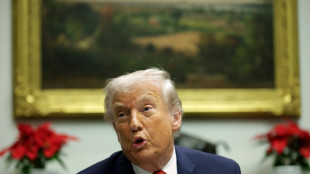
-
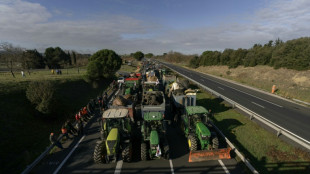 Balkan nations offer lessons on handling cow virus sowing turmoil
Balkan nations offer lessons on handling cow virus sowing turmoil
-
French readers lap up Sarkozy's prison diaries
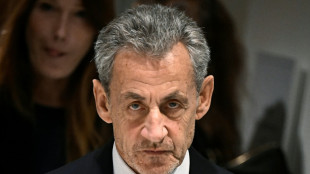

'Happy days'?: French communists hope to come in from cold
Armed with its most charismatic leader in decades, France's Communist party aims to return to its glory days in the upcoming presidential election and win back voters who have drifted to the right.
To illustrate its newfound optimism, the Communist Party of France (PCF) has picked the most upbeat slogan in the campaign so far: "Happy Days for France" -- a reference to a French Resistance manifesto during World War II, from which it emerged as France's biggest party.
PCF head Fabien Roussel, 52, is the first Communist candidate in a presidential campaign in 15 years, with the party opting to back hard-left firebrand Jean-Luc Melenchon in the past two elections instead of fielding a candidate of its own.
The Communists' promise of happiness stands in stark contrast to the doom-laden prophecies of anti-immigration populist Eric Zemmour, who has monopolised much of the media attention in the race so far.
Polls show Roussel, an MP, still languishing in the low single digits, a far cry from the Communists' heyday which they polled over 21 percent in the 1969 elections -- but a new tone is clear.
"Our programme deserves a larger audience," Roussel told AFP at the party's headquarters in Paris.
"We need to talk about happiness and how change is possible, after being told for years by various governments that we need to make more efforts, that we need to tighten our belts," he said.
- 'Change is possible' -
During the Covid crisis, the state's willingness to mobilise huge sums to save the economy showed that "there is plenty of money around", Roussel said.
But instead of "that money going to multinationals", he said, "we want it to be used in the service of the people" -- mostly in the shape of pay rises for low-income professions including nurses and teachers.
True to dogma, Roussel's programme calls for the nationalisation of big banks -- including BNP Paribas, the EU's biggest -- and of energy giants TotalEnergies and Engie.
But he is just as relaxed about backing nuclear power, defending the police force or supporting hunting -- all red rags for other parties on the left.
Roussel's team says their man needs to attract apathetic young voters as well as those on the left who have turned to Melenchon's populism or Marine Le Pen's nationalist far-right RN party.
"Our challenge is to win back those hearts and minds," Ian Brossat, Roussel's campaign manager and a deputy mayor for Paris, told AFP.
- 'Good wine, good meat' -
Roussel, who currently polls at three percent, got the country's attention when he said that French gastronomy consisted of "good wine, good meat and good cheese", sparking an outcry across the left which accused him of disrespect towards vegans and of ignoring multiculturalism.
Analysts said the seemingly off-the-cuff remark is part of an effort to appeal both to the patriotic instincts of far-right voters and to traditional communists who feel no kinship to an urban, progressive left they see as elitist.
His greatest asset is an entrenched grassroots base across France, where the party still counts 600 card-carrying mayors and thousands of other local officials.
The Soviet collapse in the 1990s hastened the decline of the PCF in French national politics, but the party proved more resilient locally, a fact many attribute to the movement's key role in the World War II resistance and postwar social reforms.
"People don't say 'communism', they say 'French Communist Party' with its history in France," Roussel said, calling the party's patriotic grounding "unique".
Hence, Paris city hall never renamed its "Stalingrad" metro station, and there are still plenty of streets, stadiums or cultural centres called "Karl Marx", "Lenin" or "Engels" in the so-called "red belt" around the capital.
- 'People suffered less' -
The annual "Fete de l'Huma", named after the communist newspaper "L'Humanite", is France's biggest festival with hundreds of thousands of visitors for days of concerts and other events.
"There is still a cultural link, a kind of nostalgia for the Communist Party", Frederic Dabi, a political analyst who heads up the Ifop research institute, told AFP.
"Many people accept communists as decent, committed people", he said, even though they also mostly reject communist ideology.
This contrast is obvious in Avion, a small former mining town in the northern Pas-de-Calais region, where the PCF regularly captures over 60 percent of the local vote.
But in national contests, the far-right picks up many of the votes in the region, which mostly backed Marine Le Pen in the 2017 presidential run-off against Macron.
"To be a communist is to be at the heart of people's daily lives," said Avion's mayor, Jean-Marc Tellier.
"I'm concerned with the underpaid worker who gets up every morning to work and can't make ends meet," he told AFP, adding that he hoped communists could now also "reclaim our place on the national scene".
For Jaime Prat-Corona, a 77-year-old party member, such a comeback can't come fast enough.
"Whenever the Communist Party is strong, people suffer less," he told AFP at a recent campaign rally.
P.Cavaco--PC
